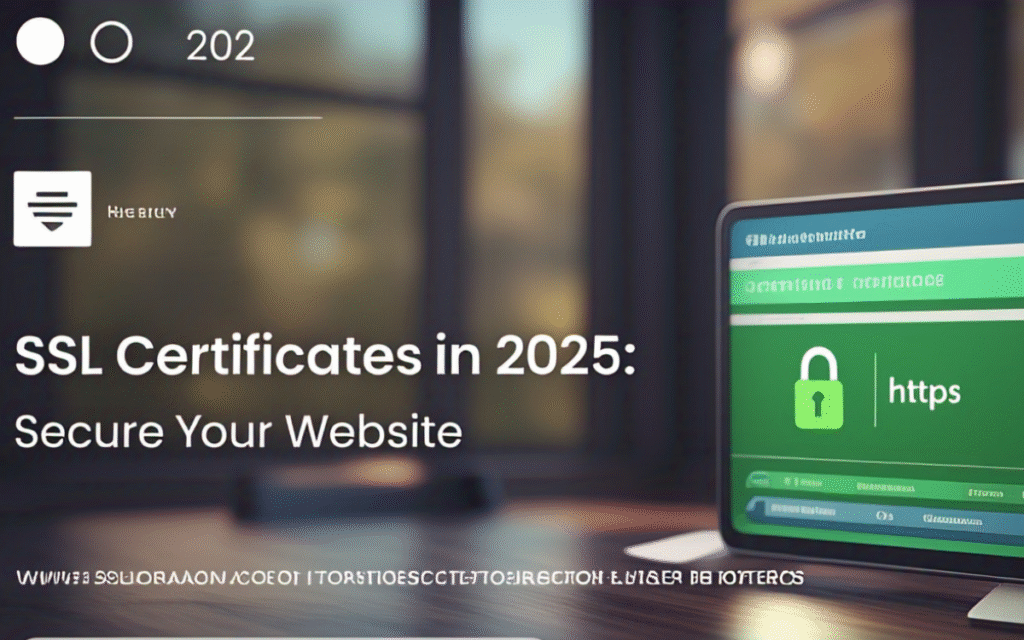In today’s digital landscape, SSL (Secure Sockets Layer) certificates have become an absolute necessity for any website. Having worked with numerous businesses on their security implementations, I’ve witnessed how these digital certificates have evolved from optional security features to fundamental requirements for online presence. An SSL certificate creates an encrypted connection between a web server and a browser, ensuring that all data transmitted between them remains private and secure.
The importance of SSL certificates has grown exponentially with the increasing sophistication of cyber threats. Modern browsers now actively warn users when they visit websites without SSL protection, and search engines prioritize secure websites in their rankings. This shift has made SSL certificates not just a security measure but a crucial component of user trust and website credibility.
SSL certificates serve three critical functions: they encrypt data transmission, verify website authenticity, and establish trust with visitors. This triple-layer protection has become essential in an era where data privacy and security are paramount concerns for both businesses and users.
Types of SSL Certificates
The SSL certificate market in 2025 offers several types of certificates, each designed for different security needs and validation levels. Domain Validated (DV) certificates provide basic encryption and are the most common type, suitable for personal websites and blogs. They offer quick issuance and are the most affordable option, but provide minimal validation of the website owner’s identity.
Organization Validated (OV) certificates offer a higher level of security and trust. These certificates require verification of the organization’s identity and are ideal for business websites. The validation process is more thorough, and the certificate displays the organization’s name, providing additional credibility to visitors.
Extended Validation (EV) certificates represent the highest level of security and trust available. They require the most rigorous validation process and are typically used by financial institutions, e-commerce sites, and other organizations handling sensitive information. The green address bar and organization name in the browser provide maximum visibility of the security status.
When selecting an SSL certificate, consider your website’s purpose and the level of trust you need to establish with your visitors. While DV certificates are sufficient for personal websites, businesses handling sensitive information should opt for OV or EV certificates to provide maximum security and trust.
SSL Implementation and Management
Implementing an SSL certificate involves several crucial steps that require careful attention to detail. The first step is choosing a reputable Certificate Authority (CA) such as Let’s Encrypt, DigiCert, or Comodo. These organizations are trusted by browsers and operating systems to issue valid SSL certificates.
The installation process varies depending on your hosting environment, but most modern hosting providers now offer automated SSL installation. This automation has significantly simplified the process, making it accessible even to those without technical expertise. However, proper configuration and regular maintenance are still essential for optimal security.
Certificate renewal and monitoring are critical aspects of SSL management. Most certificates are valid for one to two years, and failing to renew them before expiration can result in security warnings and loss of user trust. Many providers now offer automated renewal services, but it’s important to maintain oversight of the process.
Security Best Practices
Maintaining a secure SSL implementation requires ongoing attention to several key areas. Regular security audits help identify potential vulnerabilities and ensure that your SSL configuration remains up to date with current security standards. This includes checking for weak cipher suites, outdated protocols, and proper certificate chain configuration.
Implementing HTTP Strict Transport Security (HSTS) is a crucial security measure that prevents downgrade attacks and ensures that all connections to your website use HTTPS. This header tells browsers to always use secure connections, even if users type “http://” in the address bar.
Monitoring certificate health is essential for maintaining a secure website. This includes tracking expiration dates, checking for certificate revocation, and monitoring for any security issues that might affect your certificate’s validity. Many security tools now offer automated monitoring and alerting systems to help maintain certificate health.
Costs and Considerations
SSL certificate costs vary significantly based on the type and level of validation required. Basic DV certificates can be obtained for free from providers like Let’s Encrypt, making them accessible to all website owners. This has been a significant development in website security, ensuring that even small websites can implement basic security measures.
OV and EV certificates typically range from $50 to $500 per year, depending on the provider and additional features. These higher costs reflect the more thorough validation process and additional security features they provide. For businesses handling sensitive information, this investment is essential for maintaining security and trust.
When evaluating SSL certificate costs, consider the value of the security and trust they provide. The cost of a security breach or loss of user trust can far exceed the price of a high-quality SSL certificate. Many providers now offer additional security features and support services as part of their certificate packages, adding value to the investment.
Additional Resources
For more detailed information about SSL certificates, consider exploring these resources:
Let’s Encrypt Documentation – Comprehensive SSL implementation guides
SSL.com Guide – Detailed SSL certificate information
DigiCert Resources – SSL security best practices and tools
